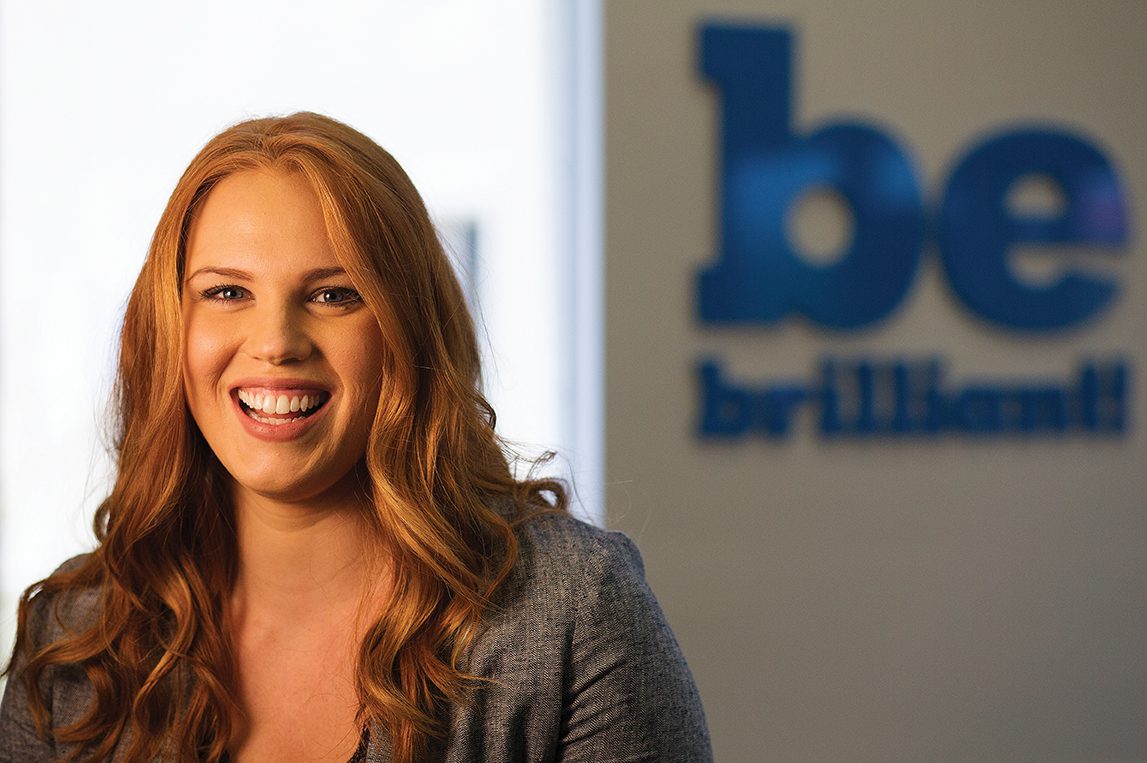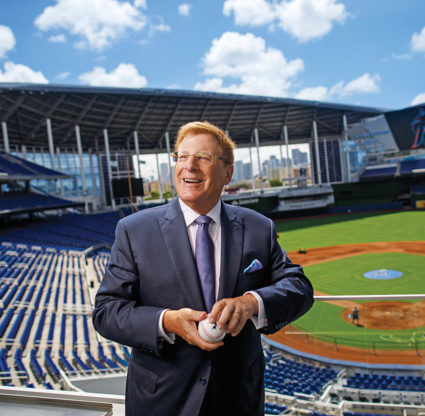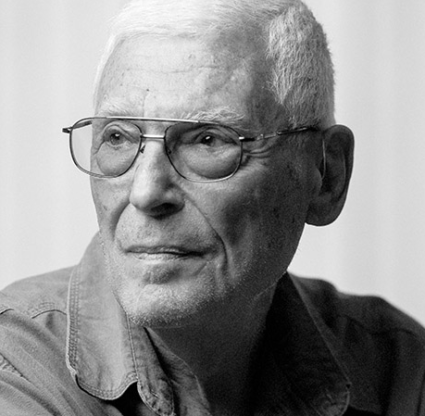The fastest-growing segments of Southwest Florida? Retiring boomers, no big shock there, and—we never thought this day would come—young adults. The millennials, 20- and early 30-somethings, are saying “no” to big-city life and all the “excitement” it purports and looking instead for a more balanced and meaningful existence in the ’burbs.
Nationally, the millennials have surpassed the boomers as the nation’s largest generation, and they now comprise the biggest segment of the U.S. workforce. They’re ready to make their mark.
“I never thought I would end up back in Naples after going to the university,” says Andrew Nelson, 24, a financial representative for Northwestern Mutual who attended Furman University in South Carolina.
But Southwest Florida suits this generation: They’re close to their parents and glad to return to them; they’re seeking lifestyle first, jobs second and reporting that this community offers both. They’re craving community connections and want to make an impact—goals more readily achieved in a smaller community than in a big one.
 |
|
Winston Justice |
“Naples was kind of a blank canvas to create something special,” says Winston Justice, 31, a California native and former NFL player who chose Naples as a place to build his career in finance and raise his three children.
Sara Stensrud, the chief human resources officer at Chico’s FAS, notes that the Cape Coral-Fort Myers housing market is one of the top 10 regions of the country attracting young adults, according to Census surveys. That’s welcome news to employers like hers who want social media-savvy, hyper- connected associates who know how to keep a brand relevant.
Like every generation, the millennials have their idiosyncrasies. They can be a little more audacious than workplace rookies of the past, a bit enamored with the meteoric rise of Zuckerberg and his ilk, somewhat obsessed with the appendage known as the smartphone, a little too tight with mom and dad, but the region’s young professionals (and some of their bosses) think their contributions outweigh their quirks.
No matter what you think of Generation Y, you cannot ignore them. These young adults are shaping the community in all sorts of ways—from altering workplace cultures to pushing for new kinds of housing to demanding corporate transparency and social responsibility. Here, they tell us what matters to them, what they expect in their jobs and what they hope to contribute to the community. In turn, their bosses and community leaders reflect on how they’re responding to this tech-savvy, idealistic, attention-loving generation.
Meet the millennials.
We’re eager to advance … and not afraid to tell you so.
When Kelsey Griffin was hired by Fort Myers accounting firm Markham Norton Mosteller Wright & Company, she wasted no time making her ambitions known.
“I want to be partner one day. I want to be partner one day. I want to be partner one day,” she says, laughing at the memory of her refrain.
She’d first encountered the firm as a high school student, grew fascinated with forensic accounting, admired firm founder Gail Markham, landed an internship there. Markham hired her even before she finished her degree at the University of South Florida.
“I’m about a year away,” the 29-year-old says. Her push for partnership was welcome. Markham and her partners, who are approaching retirement age, needed to start succession planning. They placed five employees in a formal partner training program. Griffin is the youngest.
“Once she got on board full time, she was very quick to ask me, ‘What can I do to be a partner in the firm?”’ Markham recalls. “She was very professional about it. I told her, ‘Thank you for telling me. I will show you the path.’”
Every generation has its go-getters. This one just happens to be particularly brazen. They want to start contributing, sharing opinions, pitching ideas, laying out their ambitions right away. That whole concept of deferring to seniority—not real big with this group.
“I thought I was going to get in trouble,” says 27-year-old Brown & Brown Insurance agent Corey Walker of a conference call he organized among his firm’s top-producing agents nationwide (he’s one of them) in order to pick their brains and then chime in on what was working for him. His superiors, once they found out, thanked him for his initiative.
This attribute should hardly surprise anyone. After all, the millennials grew up broadcasting their opinions, likes, dislikes, causes, beliefs, dreams, accomplishments to whomever would listen.
|
|
|
Kayla Collier |
Please, don’t misunderstand, urges Kayla Collier, 25, a social media specialist and account manager for Brilliant Lens, a marketing firm in Fort Myers.
“When millennials ask a lot of questions in a meeting or they’re trying to challenge the status quo, they’re not being defiant. They’re just trying to grow and learn. We’re not a silent generation by any means. Everyone has a voice on social media,” she says. “That mentality transcends into what we are looking for in the workplace. How can I grow? What are the possibilities? What can I learn? Here are my ideas…. We’re not saying we know it all, but we do have a different perspective since we are the technology generation and see different ways of being effective in our jobs.”
Stensrud at Chico’s likes the outspokenness.
“This generation of associates readily expresses their opinion and is hungry to prove themselves and succeed,” she says.
They kind of have to be pushy. The millennials are the nation’s most educated generation with record numbers of people going to graduate school. It’s competitive. The economy is still rebounding. And they’re carrying mega student debt, so good jobs are a must.
The entire generation, of course, isn’t made up of go-getters.
Matt Ganzak, 32, of Naples, is both millennial and employer of millennials. He’s an author and founder of ScaleUP Academy, an online training and marketing program for entrepreneurs. Ganzak is not always impressed with those at the tail end of his generation.
“They work Monday through Friday, and their weekends are sacred. You’ll never get ahead if you carve out this time and say, ‘Oh, this weekend is sacred and I don’t do anything on the weekends.’ That mentality is going to hold you back,” he says.
And, lest we not forget, this is the generation that’s clinging to their childhood homes. Four out of 10 20-somethings have returned to live with their parents at some point, according to the Pew Research Center. No wonder the Gen X’ers and boomers like to rag on them.
Sometimes the extended stay comes with good reason. Nelson, whose income is based on commission, came home after college to save money while building a clientele.
“I think it is stupid to not live at home for a little bit to build up a little savings,” he says. “I think it is common if you are going back to your hometown, and I think it’s wise.”
And sometimes, it’s just ’cuz a full fridge is hard to give up.
“He is totally OK with living with mom and dad right now,” Collier says of her 22-year-old brother (she herself is married and a new mom). “His friends are doing the same thing. … I just don’t think there’s an urgency. It’s comfortable. Why would they go?”
We want your jobs (some day). Please help.
The whole entitlement thing—the instant VP/CEO expectation—may be overblown. At least that’s the impression one gets from some of the region’s young professionals, who understand that success is the product of ingenuity, hard work—and, yes, time.
“Entrepreneurship is hard. Eighty percent of businesses fail in the first 18 months,” Ganzak says. “We keep working at it and we keep pivoting. I’ve been working at my business since 2005. It’s not an overnight success for me.”
As millennials sprint up the career ladder, what they crave is mentorship.
“All generations are different in their approach, but millennials want to have more coaching and feedback than the other generations,” says Yemisi Oloruntola-Coates, the manager of diversity and language services at Lee Memorial Health System, who works to facilitate communications among the system’s five generations of employees.
Walker likes to seek input from his divisional president—and appreciates that the executive will take the time to coach him.
“It’s amazing that I can have that phone call and not worry about whether it’s OK to call and will this person have time for me,” he says.
 |
|
Louis Bruno |
Louis Bruno, 27, started his company, Bruno Air, in 2012 after working for several years for a family-owned air-conditioning firm. Among his first steps: Form an advisory board of business leaders whom he admired.
“It was probably the best decision I made. They helped keep me from making a lot of mistakes,” Bruno says.
Employers and community organizations are taking note.
“(Millennials) are not afraid to tell you what their wants and needs are. I have always liked that,” Markham says. “That’s important to me, and important to the firm. We have always had an open-door policy: What do you need to be successful at our firm?”
Beyond formal mentoring, millennials just want your time.
“They want personal connections at work. They like continuous feedback instead of the annual review,” says Angela Pruitt, executive director of human resources for the Lee County School District. If a millennial leaves a teaching job, it’s usually not because he or she didn’t enjoy interactions with students; it’s because the teacher felt disconnected from, or unsupported or unvalued by, his or her superiors. The school district has long given teachers multiple evaluations each year, but administrators are learning to respond even further to young instructors’ desires for a sounding board.
But maybe we’re a little over-dependent …
Feedback is good. There’s a line, though, between seeking support and clinging to the proverbial cord.
Both Oloruntola-Coates and Pruitt can cite instances of parents intervening in their adult children’s work lives; showing up at disciplinary hearings, for example. Call it helicopter parenting to the extreme.
And sometimes the need for feedback can hinder decision-making. Oloruntola-Coates says millennials may find it hard to lead teams or take on leadership roles because they want more consensus when dealing with problems. Her organization offers leadership programs to help young up-and-comers address that and other challenges.
Elsewhere, older executives are simply adapting to their younger associates’ styles. “We’ve learned millennials prefer open collaborations where information is shared and everyone contributes to decision-making,”
Stensrud says. “This preference requires managers to find solutions, such as assigning a project to a team rather than an individual.”
Millennials even like to consult with each other (electronically, of course) before making a big decision, Collier notes. “There’s a lot of dependence on peers,” she says.
And they prefer very specific instructions, observes Mary Krome, an assistant professor in FGCU’s department of management whose scholarly interests include tracking generational changes.
When she first left business ownership for the classroom, her students belonged to Generation X. These were latchkey kids, used to independence. For papers and projects, Krome discovered she was best off giving students minimal instructions and letting them run with their ideas.
The millennials don’t like that. Educated in the era of standardized tests and regimented curricula, today’s students fly through true/false and multiple-choice tests. They have a hard time with open-ended assignments, though.
“It’s different. I’m not saying it’s better or worse; it’s just different and you have to adjust to different groups of students,” says the professor, who now gives multi-page instruction sheets.
We’re impatient … but we think that’s a good thing.
Impatience carries negative connotations. To Bruno, however, it’s the fuel that gets things done.
“Instant gratification is real,” he says. “But I was on the front side of it. I just always wanted to be better.”
Immediacy is the foundation for his decision-making. Bruno decided he’d surpass his competition if he could offer same- or next-day service.
“My management team said there’s no way; we don’t have the people. I said, ‘OK, well, get the people.’”
They recruited, trained and dispatched technicians. Bruno didn’t wait to grow an inventory, either. Instead, he pulled needed parts out of units he had on hand or ordered the parts shipped overnight. Volume offset shipping fees.
“It blew our business up,” Bruno says.
Likewise, when Griffin and Melissa Cofta, a marketing and public relations account manager at Priority Marketing in Fort Myers, decided to launch Leadership NEXT, a Greater Fort Myers Chamber of Commerce-affiliated organization for young professionals, they didn’t feel compelled to plan every aspect of the group’s operations. They delved in.
“Let’s start small, let’s have some meetings and just get it started,” Cofta says. “We don’t have to be everything all at once.”
She adds, “(The millennials) have a ‘beg for forgiveness rather than ask for permission’ mentality.”
Technology shapes us in desirable—and dubious—ways.
Professor Krome’s millennials are masterful at finding and sharing data. But they struggle to analyze it, she says.
“They’re sharing data; they’re not sharing information,” she says. “The interpretive element has been removed.”
They have a hard time seeing the big picture, Krome continues. And it’s no wonder, she says. They look at bits of information on tiny screens, not complete documents.
“It’s very fragmented,” she says. “They can bring all the data in … they can rephrase all of the information in their own words, but if you ask them what’s the core of the problem, what’s the real issue, that’s hard for them.”
It’s hard to deny, though, that technology has given millennials a slate of enviable skills—efficiency, creativity, adaptability and problem-solving.
Bruno discovered that dispatching staffers to run parts to job sites was costing him hundreds of dollars an hour in lost productivity, fuel and staff time. His solution? Uber. The ride-share service costs him an average of $20 per trip.
In FGCU’s alumni relations department, Arielle Stimson, 24, is finding ways to jazz up the mundane business of raising money. She’s created, for example, YouTube videos to compel alums to buy memorial bricks and a virtual map that allows them to view their bricks on campus. “We just wanted to make it more fun, something they wanted to be a part of,” she says.
Growing up with Google ever at the ready, the millennials can teach themselves anything. Griffin was assigned to help a client sort out nearly a year’s worth of financial statements. She was unfamiliar with the software programs needed to do it, “but I certainly wasn’t going to tell the client I didn’t know.” She studied online tutorials and figured them out.
 |
|
Jessica Peer |
Or consider Jessica Peer, 29, who graduated from FGCU with a degree in human performance/exercise science and got to work right away in her chosen field—until her career took a major twist.
Peer wanted to get more involved with the community (more on that millennial characteristic in a minute). With the encouragement of colleagues, she ran for Lee Memorial’s publicly elected board of directors in 2012. The position gave her a way to magnify her passion for wellness and add a youthful perspective to a boomer-heavy board. But it created an unexpected challenge: Not every company is keen on having a public official on payroll.
But an acquaintance, Vince Honc, whom she’d met while coaching youth softball, offered her a position as his personal assistant, a job that became something like a paid internship, Peer says. “I didn’t have any industry knowledge,” she admits. Fast forward: Peer is a general sales and new home associate with Team Honc at Keller Williams Realty.
“As a millennial, you have to wear so many hats. Wherever life takes you, you have to go with the ebb and flow,” she says.
In the workplace, some employers are noticing their young staff members don’t want to be stuck in a single role.
“They are looking to gain experience or variety in their work,” Oloruntola- Coates notes. The system is pushing to give leadership or assignments that transcend job descriptions for those who want them.
“I would say the millennials are ambitious,” she says. “They want to learn everything.”
We value working for others … but we’re ready to go out on our own.
Nationally, millennials, who came of age during the Great Recession, tend to be a little risk-averse. Federal data suggests they’re less likely to start businesses than the Gen Xers or boomers were at their ages.
But that doesn’t appear to be true in Southwest Florida, where young entrepreneurs are thriving. Maybe it’s the influence of a strong small-business community. Or maybe, the real estate crash taught young Southwest Floridians not to rely too heavily on any one revenue stream.
“I really like the fact that almost everybody I bump into has something else going on, a side project,” notes chiropractor Dr. Dane Cunningham, 31, co-founder of Simply Spine Centers in Bonita Springs. He’s developing an exercise program for motorcycle riders to ease the effects of long hours on the road.
Joe Nugent, 38, is director of sales and marketing for the Holiday Inn Airport in Fort Myers and also owns a home watch and inspection company. “Unless you are at a huge company, there is no such thing as pensions and 401(k)s any more. I’m taking all the profits from my side business and putting it toward my retirement.”
Peer and a partner are developing HomeSpurt, an online service that helps real estate professionals generate leads and market their brands. “The entrepreneurial spirit is big. We are all striving to find that next challenge.”
And, naturally, this generation just wants to do things differently from the ones that preceded it.
“I see the value in working for a big company, but for me, my wheels are always spinning—how can I do things better and how can I do things different?” says Alex Daane, 31, of Naples, who grabbed all of the knowledge he could working for real estate firms out of college—and then started his own. “I think that really motivated me when I saw the inefficiencies—the old-guard way of doing things. We are very adaptable. We can move around and adapt to new technologies. I think that was my motivator, more than anything else.”
We hate the idea of 9 to 5, and, no, that doesn’t mean we’re lazy.
Flexibility, Nugent says, is one of the millennials’ biggest demands.
“What do we want right now? We want work and life balance. You don’t live to work … and it’s not always about being in at 8 a.m. and clocking out at 5,” Nugent says. “I think that workplaces in general are going to have to start embracing those initiatives and those movements.”
“We get a really bad rap,” he adds. “It’s not that we’re lazy; it’s just that we have figured out a way to get it done faster.”
Technology (for better or for worse) allows people to work anywhere at any time. So why not, millennials figure, burn midnight oil in exchange for time to volunteer, take a class, drop in for lunch at the kids’ school? “You can manage your platform, manage your image, manage your brand from your phone,” says Kevin Omar Williams, a financial executive in Naples.
Millennials know what their grandparents did—40 years of reporting to the same place, working the same schedule. Their parents were a bit more liberated in their career choices and are encouraging their kids to seek even further fulfillment.
“We are seriously chasing freedom from that job, from breaking that chain of work,” says Monique Carlone, 25, who watched her grandparents—immigrants from Cuba and from Italy—and her parents build their American dream. She’s grateful for what they did, but she doesn’t want the same work-to-home, work-to-home routine.
“How much more impact can you make when you own your schedule?” asks Carlone, who, in addition to working for her family’s electrical services firm is developing an alternative income through Amway, the direct sales corporation. She hopes eventually that revenue stream will free her to pursue interests such as studying economic development in developing nations. “You can’t do that when you’re stuck at a desk.”
And that gets us to perhaps the biggest attribute of the millennials.
We want to have an impact.
A group of young professionals one morning gathered together to talk about their career choices and their generation’s contributions. Justice listened and then remarked: “The paycheck didn’t come into anyone’s decision. People aren’t chasing a paycheck. They’re chasing a deeper impact.”
Justice has worked for a large financial firm, but more and more his work is shifting to civic-minded pursuits. One of them is a soon-to-be-announced impact platform he’s developing with Williams, who had come to Naples to help develop a legal education consortium, InfiLaw, that focuses on serving the underserved.
Williams, Justice and their partners hope to link the region’s high-powered retirees with up-and-coming entrepreneurs who want to use the private sector to create public good.
“I’ve always viewed business as a catalyst to evoke change,” Justice says. “My work is an expression of how I want the world to change for the better.”
“You have to raise your hand,” says Williams, who was spurred to civic action, in part, by a New York Times story about New York City’s African-American dropout rates. “You can’t sit back and just read about these things.”
Millennials want what they do to matter. They value family. They want jobs that make a difference. They want to give back.
“We want to find purpose,” Nelson says.
“As soon as we were financially stable, we started looking for ways to volunteer,” says Cunningham, referring to himself and his business partner. “It’s about ‘I’m stable, I’m solid, now what can I do for other people?’”
Nonprofits are starting up next-generation boards to groom new board members and donors. So many of them are springing up, in fact, that the Greater Naples Chamber of Commerce is starting an Emerging Leadership Council made up of representatives from these young leadership groups.
“The more these next-generation groups grow and effect change in the community, the more people feel attached,” says Shanna Short, a vice president for J.P. Morgan Private Bank in Naples, who sits on several such boards. “We love that. We love to see the results of that attachment. I think that’s helping keep people here.”
So, forgive these young workers for seeing work schedules as something flexible, not fixed. Excuse the interruptions as they solicit for your feedback. Understand their desires to work collectively. Because if idealism is the millennials’ most prominent attribute, then Southwest Florida’s future is in good hands.
What else should you know about the millennials?
They don’t want to live behind the gates:
Millennials love the idea of mixed-use, walkable communities. These young adults may help push the development of downtowns, roadways made pedestrian-friendly, and neighborhoods linked to encourage walking and biking. Millennials are also embracing community wellness initiatives such as the Blue Zones Project and may be the force that makes those changes stick for generations to come.
They value experiences, not stuff:
Maybe they saw their parents lose tangible assets during the recession, or maybe they just like posting exciting selfies to Facebook. Regardless, millennials are less likely to spend money on goods and more likely to spend it on experiences.
They’re worried about cost of living:
As much as millennials love the Southwest Florida lifestyle, they’re worried that economic pressures will drive them out: High housing costs, record student loan debt and starting wages that don’t match urban pay scales could deter young adults from settling here.
They’re demanding accountability:
Millennials are information seekers, remember? Companies can’t mask unethical practices or pretend to be something they aren’t. Young consumers will catch them—and then blast their findings to the world.
They’ll support businesses that match their values:
Millennials choose both their employers and the companies they do business with based on shared values. They want to know that companies are watching out for—and spending profits on—a greater good.
They’re the next great political force, but they’re not declaring allegiances:
Researchers nationally have taken note of young people’s disinterest in signing on to a political party. In Collier County, for example, there are more millennials registered as “no party affiliate” (37 percent as of early March) than there were Democrats (26 percent) or Republicans (35 percent). Both parties are courting them pretty heavily, however. It’s millennials, after all, who account for the unexpected rise of Bernie Sanders.






